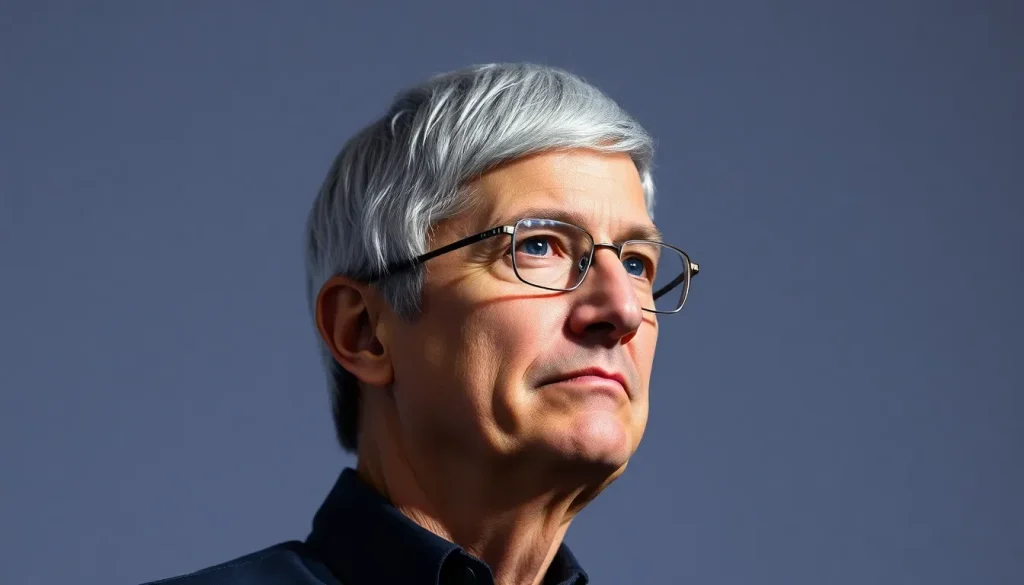NLRB drops allegations of Tim Cook's email breaching workers' rights

In a significant turn of events, the National Labor Relations Board (NLRB) has formally withdrawn its claims against Apple concerning an email sent by CEO Tim Cook. This decision marks the culmination of a four-year investigation into allegations that Cook's communication violated the rights of employees. Understanding the context and implications of this case sheds light on the broader dynamics between corporate governance and employee rights in today's workplace.
As corporate environments become increasingly scrutinized for their treatment of employees and transparency, this case highlights the delicate balance that leaders must maintain between protecting company interests and upholding labor rights.
Background of the NLRB Claims Against Apple
The controversy began in 2021, following an all-hands meeting where Tim Cook addressed sensitive issues such as pay equity. Shortly after this meeting, details of Cook's comments were leaked to the media, prompting him to send an email warning employees against leaking confidential information. Ironically, this email also found its way to the press.
The NLRB initially perceived Cook's email as a potential infringement on employees' rights, claiming that Apple's confidentiality policies could interfere with workers' ability to organize and express concerns about their workplace conditions. This interpretation raised significant questions about the boundaries of corporate communications.
The Allegations Against Tim Cook
In its inquiry, the NLRB highlighted several key points:
- Confidentiality Policies: The NLRB suggested that Apple's policies might be seen as coercive, restricting employees from discussing workplace issues freely.
- Impact on Organizing Efforts: The board also scrutinized the dismissal of Janneke Parrish, a vocal advocate for the #AppleToo movement, who claimed she was fired for her efforts to organize employees.
- Political Influences: The case was notably influenced by the political climate following the Trump administration's rise to power, which led to delays and uncertainty in labor complaints.
Withdrawal of the Claims
After extensive deliberation, the NLRB officially withdrew its allegations against Apple. A letter sent to Parrish's attorney indicated that the agency found no basis for the claims after conducting a thorough investigation. The NLRB's regional director emphasized that the decision was made following careful consideration of the evidence presented.
This withdrawal is significant not only for Apple but also for the ongoing discourse around labor rights in the tech industry. It reflects a broader trend where corporations are navigating complex legal landscapes while attempting to maintain their public image and employee satisfaction.
Current Challenges for Apple
While Apple may have emerged victorious in this particular case, it faces ongoing scrutiny from various labor organizations. Recent reports have surfaced alleging that labor practices at Foxconn, one of Apple's primary manufacturing partners, involve:
- Long Working Hours: Employees reportedly endure excessive shifts that extend beyond legal limits.
- Discrimination: There are accusations of discriminatory practices against certain worker demographics.
- Delayed Compensation: Many workers have claimed they are not paid on time, leading to financial distress.
These allegations present a new challenge for Apple's leadership, which must work to address not only the fallout from the NLRB case but also the claims concerning labor conditions in its supply chain. Transparency and accountability will be crucial as the company navigates these issues.
The Broader Implications for Labor Rights
The NLRB's decision to withdraw its claims against Tim Cook raises important questions about the intersection of corporate communication and labor rights:
- Corporate Communication Policies: Companies must find ways to protect sensitive information without infringing on employee rights.
- Employee Advocacy: The case highlights the need for robust channels that allow employees to voice concerns without fear of retaliation.
- Legal Precedents: This episode may set important precedents for how similar cases are handled in the future, potentially influencing labor law interpretations nationwide.
As the workplace evolves, the balance between maintaining operational confidentiality and ensuring employee rights becomes increasingly critical. Companies like Apple must prioritize creating environments where employees feel safe to express their concerns while also protecting proprietary information.
Conclusion on the NLRB Case
While the withdrawal of claims against Tim Cook is a relief for Apple, the company must remain vigilant about its labor practices. As scrutiny from labor organizations grows, Apple has an opportunity to lead by example in the tech industry, fostering a culture of transparency and respect for employee rights. The resolution of this case may serve as a reminder for other corporations about the fine line they walk between protecting their interests and advancing worker rights.
For those interested in further exploring this story, you can watch a related video that provides additional context and insights into the implications of the NLRB's decisions:




Leave a Reply